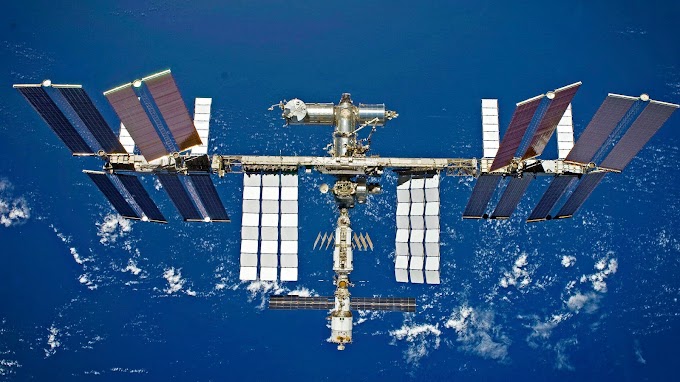In just one generation the Internet changed how we make and experience practically the entirety of media. Today the actual demonstration of devouring media makes a totally new type of it: the social data layer that recounts the tale of what we like, what we watch, who and what we focus on, and our location while doing as such.
The crowd, when detached, is currently projected in a more focal and compelling job than any other time. What's more, similar to anybody out of nowhere thrust in the spotlight, we've been learning a ton, and quick.
Also read: Evolution Of Media | How The Media Has Changed With Technological Advancements
This social data layer uncovers such a great amount about our conduct that it programs programmers however much they program us. Scholars for the blog site Gawker observe constant web utilization measurements on the entirety of their posts—and they in a flash figure out how to make content to best order a group of people. The head programmer for Fox Television Network comparatively has a readout that gives a top to bottom investigation of crowd conduct, premium, and assumption. In the approach to the last scene of the American TV dramatization Breaking Bad, the series was attracting up to 100,000 tweets every day, an obvious sign that the crowd was as intrigued by what it needed to say as the thing the makers were making.
This associated discussion is changing crowds also. Like Narcissus, we are attracted to ourselves on the web and to the alarm of perpetually friendly associations. In her book Alone Together, Sherry Turkle (2011) calls attention to that during this season of most extreme social association, we might be encountering less authentic associations than at any other time. The famous media scholar Marshall McLuhan (1968, 73) saw the potential for this over 40 years prior when he saw that expansion prompts removal. At the end of the day, in a vehicle we don't use our feet—we hit the road and our appendages go into limbo. With PDAs and social gadgets, we are associated with screens and for all intents and purposes to companions around the world, however, we might relinquish a valid association with the world. Basically, we show up at Turkle's "distant from everyone else together" state.
Previously, one could wind down the media—put it down, go disconnected. Well, that is turning into a special case, and for some, an awkward one. Recommend to a youngster today that she go disconnected and she'll inquire, "Disconnected, what's that?" or "For what reason am I being rebuffed?" We are quite often associated with an Internet-empowered gadget, regardless of whether as a cell phone, wellness screen, vehicle, or screen. We are increased by sensors, signs, and workers that record immense measures of data about how we lead our regular daily existences, individuals we know, the media we devour, and the data we look for. The media, essentially, follows us all over, and we're becoming anesthetized to its essence.
It is shaking to understand that the ramifications of this absolute media climate were additionally expected over 40 years prior by McLuhan. At the point when he talked about the "worldwide town," his point was not just that we'd be associated with each other. He was worried that we'd all know one another's business, that we'd lose a proportion of protection because of living in a universe of such personal mindfulness. McLuhan (1969) called this "retribalizing," as in present-day media would lead us to impersonate the conduct of ancestral towns. Today, the impacts of this marvel assist with characterizing the media climate: we consciously oversee ourselves as brands on the web; we are more worried than any time in recent memory with one another's business, and we are more handily called out or disgraced than in the past (and more anonymous) mass correspondence period.
We keep up with profoundly personal connections with our associated gadgets. Promptly after awakening, the majority of us go after a cell phone. We proceed to check them at least multiple times for the duration of the day, burning through everything except two waking hours with a cell phone close by (IDC 2013). As these gadgets become inescapable, an ever-increasing number of data about our lives is almost for all time put away on workers and made accessible by others (counting private organizations and government offices).
This thought that all that we do can be estimated, measured, and put away is a crucial change in the human condition. For thousands of years, we've had the thought of responsibility to an omnipresent, all-knowing God. He monitored us, for our own salvation. It's something that made religion successful. Presently, in just two or three thousand days, we've conveyed the real all-seeing, all-knowing organization here on earth—for purposes less elevated than His, and maybe significantly more compelling.
We are additionally amidst an uncommon period of media innovation. We've passed from the primary online Internet to the consistently associated post-PC world. We will before long end up during a time of unavoidable processing, where all gadgets and things in our assembled world will be associated and responsive, with the capacity to gather and discharge data. This has been known as the Internet of Things.
In the new past, the speed of mechanical change has been fast—however, it is speeding up rapidly. One bunch of numbers recounts the story. In 1995, the Internet associated together around 50 million gadgets. In 2011, the number of associations surpassed 4.3 billion (at the time generally 50% of these were individuals and half were machines). We ran out of Internet tends that year and are presently receiving another location component called IPv6. This plan will take into consideration around 340 billion billion novel IP addresses. That is presumably the biggest number at any point seriously used by humanity in the plan of anything. (The universe has around 40 significant degrees a larger number of iotas than we have Internet addresses, however, man didn't develop the universe and with the end goal of this section it's anything but a correspondence medium, so we'll continue on.)
Here is a major number we will battle with, and soon: there will probably be one trillion Internet-associated gadgets in around 15 years. Not one thing in existence will become quicker than this medium or the number of associated gadgets and the data they emanate. The vast majority of these gadgets won't be individuals, obviously, yet the effect of a trillion gadgets discharging signs and recounting stories on our mediated world couldn't possibly be more significant.
To envision the size of this, envision the volume of Internet associations in 1995 as the size of the Moon. The Internet of today would be the size of Earth. What's more, the Internet in 15 years the size of monster Jupiter!
Remarkable change like this issue because it brings up the fact that it is so problematic to anticipate how media will be used tomorrow. Inspecting the patchy record of past expectations is lowering and helps open our brains to what's to come.
In 1878, the year after he designed the phonograph, Thomas Edison had no clue about how it would be used; or rather, he had scores of thoughts—however, he was unable to come up deduced with the executioner utilization of his equipment. Edison was a canny designer who kept meticulous notes.
The Internet has flipped around our reality. It has altered correspondences, to the degree that it is currently our favored mode of ordinary correspondence. In nearly all that we do, we use the Internet. Requesting a pizza, purchasing a TV, offering a second to a companion, sending an image over texting. Before the Internet, assuming you needed to stay aware of the news, you needed to stroll down to the newspaper kiosk when it opened toward the beginning of the day and purchase a neighborhood version announcing what had happened the previous day. Be that as it may, today a tick or two is sufficient to peruse your nearby paper and any news source from anyplace on the planet, refreshed regularly updated.
The actual Internet has been changed. In its initial days—which according to an authentic point of view are still moderately later—it was a static organization intended to carry a little cargo of bytes or a short message between two terminals; it was a store of data where the content was distributed and kept up with simply by master coders. Today, be that as it may, tremendous amounts of data are transferred and downloaded over this electronic leviathan, and the substance is particularly our own, for the time being, we are generally analysts, distributors, and makers.
During the 1980s and 1990s, the Internet broadened in the degree to incorporate the IT capacities of colleges and exploration focuses, and, later on, public substances, establishments, and private ventures from around the world. The Internet went through monstrous development; it was at this point not a state-controlled venture, however the biggest PC network on the planet, involving more than 50,000 sub-organizations, 4 million frameworks, and 70 million users.








0 Comments
Thanks for your feedback.